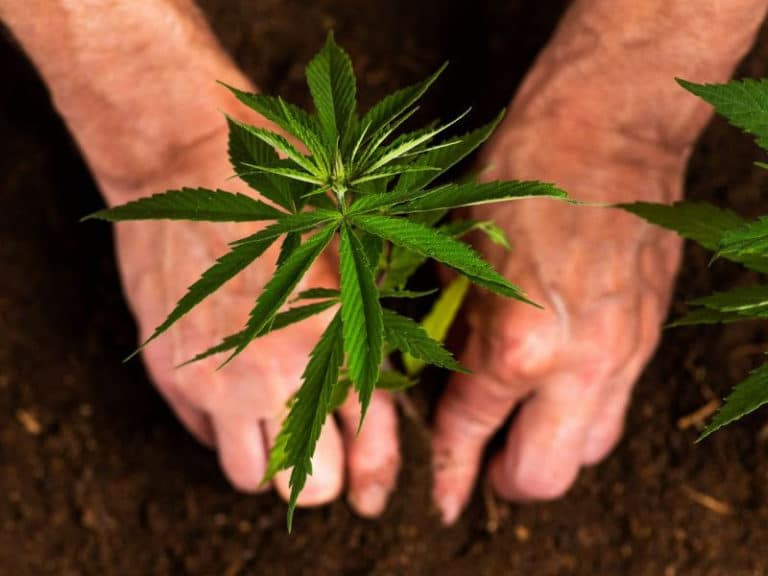2019 saw a dramatic shift in the cannabis investment landscape with most of the publicly traded cannabis companies experiencing stock drops (as much as 60-80%!)1 after many of them failed to meet profitability expectations. This development was especially significant given fairly broad predictions earlier in the year about the impending demise of smaller cannabis companies at the hands of these large, well-funded, publicly traded players – the thinking being that smaller cannabis companies simply wouldn’t be able to withstand the inevitable marketing onslaught and overall cash power of the bigger players. It seemed like logical reasoning, at the time, that these companies, infused with capital from other consumer packaged goods (CPG) segments2 (tobacco, beer) or fueled by stock prices at what have since proven to be unsustainable ratios, were all set to dominate the marketplace. How quickly a couple of quarters can change the narrative.
Some have called this the first crash, following the first boom, of the cannabis sector. While it is true Canadian Securities Exchange (CSE) and Toronto Stock Exchange (TSE) cannabis stock prices dropped enough to be called a crash, and those drops have, in turn, impacted cannabis company valuations up and down the ladder, there is an important set of numbers that suggest something other than a cannabis industry-wide crash. The U.S. cannabis industry total economic impact was up, not down, as much as 30% from 2018 to 2019. Evaluating dispensary sales, plus the additional economic impact of dispensary store sales, Marijuana Business Daily3 reported $27.7 to $33.8 billion in 2018 increasing to $36.7 to $44.7 billion in 2019, and projected $42.5 to $52 billion for 2020. An industry simply cannot be in a crash when sales are up $8 to 10 billion a year.
Should I Invest in the Cannabis Industry?
What does it mean? Taking apart the cannabis stock prices crash, it is really a case of significant, but ultimately limited, poor performance. When pools of cheap cash are available, silliness often abounds. It never made sense that valuations of Canadian cannabis companies were running at 30x and higher, while U.S. companies were running around 10x, even with the Schedule 1 complication – remember the U.S. population is almost 10 times the size of Canada. Acquisitions were made that suggested little strategic thinking about synergies. In some cases, management lacked experience. Credit due – I’ve heard several of the top operators of these companies speak at various events, and many really impress. But I’ve also heard more than one give a defense of their poor performance by saying it turns out operating a company is really hard. Despite the certain challenges of running a vertically integrated operation dependent upon a finicky agricultural crop, as a business operator, I find that to be a shockingly poor defense. Of course operating a company is really hard otherwise everyone would be doing it!
There is now underway an eyes-wide analysis of how little operating capital many of the bigger cannabis companies have left4, as well as a growing trail of cancelled transactions and C-suite transitions5. The marijuana industry is now calculating which are likely to merge, or fail and become available as distressed assets.
In sum, this has opened up a lot of opportunity. For those still most comfortable in the public market, all you have to do is study which well run Management Service Operations (MSOs) are likely to make it through this current valuation. Several have secured sizable amounts of debt capital ($100-300 million)6. While it was meant to ensure not only their survival, but also their ongoing growth – the debt burden has either been well reasoned and managed, or not. Outcome is there will be fewer, but stronger and ultimately larger players at the top of the marijuana industry and, in some cases, cannabis stock prices for those top players have already begun to rebound.
As other investors have tired of waiting for the larger companies to reach stable profitability, there is also a renewed interest in early stage investing in cannabis. As someone who always believed in the strength of early stage and emerging companies, that is really just about coming to our senses. Entrepreneurs have always been the life-blood of every industry, and the overall U.S. economy. Small companies are where innovation happens, across the board, including cannabis. Whether it is phenomenal applications for health and wellness or the next popular strain of flower, a smarter device for concentrates or a delicious edible, it is happening at companies that need to raise their early rounds. For those of us in that early stage space, the 2019/2020 reset has meant more realistic valuations, now in a very reasonable range, and lower cost basis on smart investments simply equates to greater returns. As the cannabis industry continues to grow, there are also more opportunities to find these early stage deals, via funds, as well as investor conferences and companies that can help you find direct investment opportunities.
Will the Coronavirus Impact Cannabis Investment?
The significant impact the Covid-19 global pandemic is having and is expected to further create in the cannabis industry can be identified in several ways: designation as an essential business; recession proof thesis; importance of excise tax contribution; and legacy skillsets; as laid out below.
Most everyone agrees cannabis’ designation as an essential business represents a major boost for the industry in profile and perception7. As a new industry, where even the largest players aren’t particularly huge companies, and the smaller players are mostly bootstrapped operations, a disruption might’ve been catastrophic for the industry. Perhaps equally important, it represented a significant validation of the industry in the states and localities where it had already been given legitimacy either in the medicinal or adult use categories. Despite efforts at the federal level by both Senators and Representatives, that has not yet translated into movement on the desired fronts of inclusion in the Small Business Assistance (SBA) relief programs, or access to standard banking. At some point, there has to be a reality check that an essential business had to be done in cash, the most germ-likely form of financial transaction, because retailers and others did not have broad access to accepting other forms of payment. When this leads the acceleration towards normalized banking for the industry, it is the next sea change in cannabis.
The recession proof thesis about cannabis was born from two data points initially. First, a clear comparison to alcohol and spirits, which has historically been a recession proof CPG category9. Second, the big sales surge when sheltering first began, followed by a sales decline, which suggested a hoarding/toilet paper kind of comparison, since followed by fairly consistent zigzag sales. While the data is still early and under evaluation, it suggests a “must have” consumer mindset, with a stash up, use up, re-stash kind of pattern. Given the unavoidable likelihood of a recession following this global pandemic and crisis, whether short or prolonged, this recession proof position is certain to bring additional investor attention in cannabis investment opportunities, much needed in an industry which is generally under-capitalized, even though it continues to grow by leaps and bounds.
As state and local tax revenue has been devastated by the closure of the economy, and already struggling tax base contributors potentially fall away (Neiman Marcus and J Crew have already filed for bankruptcy protection and numerous department stores and large retailers are expected to follow), those industries which continue to meaningfully contribute to the tax revenue base become more desirable. Cannabis fits the bill10, and is paying some of the highest excise taxes (problematic for certain reasons, but that’s another topic). Several municipalities in California, previously closed to dispensaries, are reconsidering their position, and the issue is already in front of various city councils. What’s always been true is that contributors get attention. Ergo, as cannabis becomes essential to government tax bases, the industry’s needs commensurately rise in the attention they receive from government. Issues like access to banking, excise tax rates, shutting down the unregulated market, schedule 1 classification, and IRS Regulation 280e, all of which are growth inhibitors, are all going to get more movement.
Finally, there is the legacy of the marijuana industry itself, a hardscrabble history that has trained its supporters, visionaries, and entrepreneurs to well withstand crisis. Operators, real operators, in the segment know running a cannabis business can be hard, and they aren’t surprised by a finicky crop, or a nonsensical licensing requirement, or just about anything – they’ve seen it. What they are is innovative and resilient, big words for smart and tough. And well worth betting on, especially now.
Sources:
- The Single Biggest Issue With Marijuana Stocks Right Now, Sean Williams, The Motley Fool, October 21, 2019
- Cannabis Attracts Big Tobacco, Alcohol, and Pharma. Which Big Industries Will Join Next?, Kris Kane, Forbes, December 19, 2018
- Chart: US marijuana industry’s economic impact could hit $80 billion by 2022, Eli McVey, Marijuana Business Daily, May 29, 2018
- Cannabis Cash Burn: These 10 Marijuana Stocks Could Run Out of Money in 2020, Ryan T., The Cannabis Investor, February 20, 2020
- Weekly Cannabis Report: M&A Deals Keep Getting Cancelled, Seeking Alpha, December 24, 2019
- Large US cannabis companies look to debt funding versus equity and sale-leaseback deals, Nick Thomas, Marijuana Business Daily, February 12, 2020
- Marijuana’s big moment: Pot stores are essential businesses. Will legal weed go mainstream?, Trevor Hughes, USA Today, April 20, 2020
- 44 House and Senate Members Are Calling For Cannabis Business To Gain Access To Forthcoming COVD-19 SBA Funding, Joan Oleck, Forbes, April 22, 2020
- Is marijuana ‘recession-proof?’ Industry experts say yes – to a point – and alcohol might be a guide, John Schroyer and Bart Schaneman, Marijuana Business Daily, March 24, 2020
- Cannabis Is A Tax Bonanza Fro States, Nick Kovacevich, Forbes, December 5, 2018








